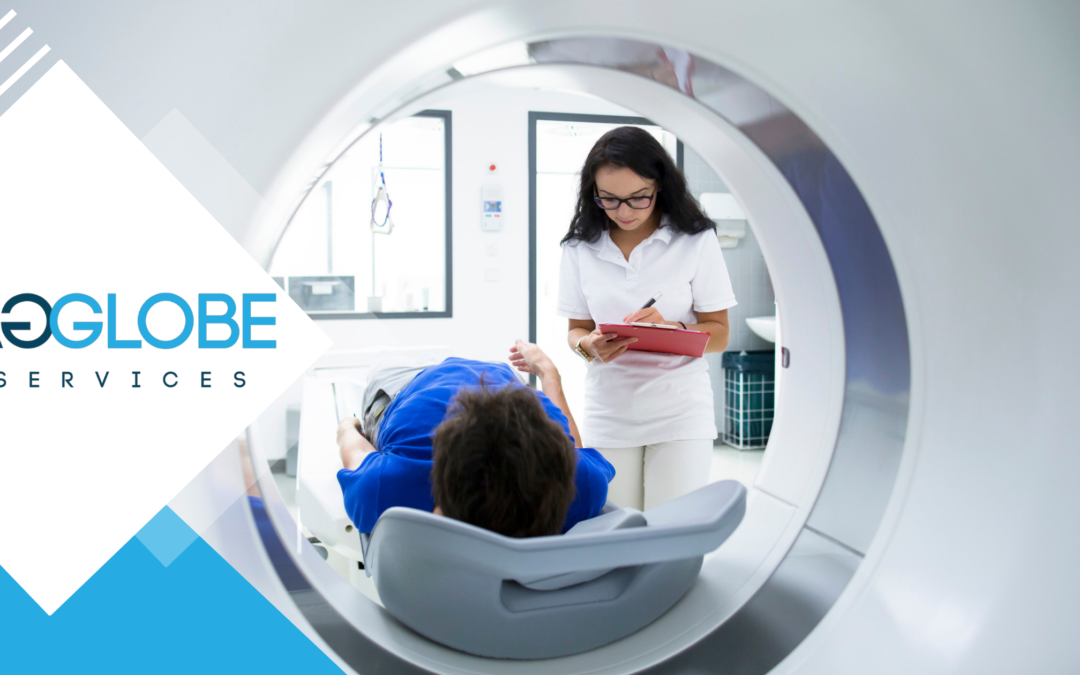In our most recent Career Spotlight feature, we will be exploring the profession of a CT Technologist, which is highly sought-after and offers excellent opportunities for growth and advancement. These Healthcare Professionals are crucial in diagnosing and treating a diverse range of medical conditions. Due to the rapid development of medical technology, this role has become increasingly important in the Healthcare Sector. This blog will cover the responsibilities of a CT Technologist, the skills and qualifications required to pursue this career, and the challenges and opportunities presented in this field.
The American Society of Radiologic Technologists defines a CT Technologist as a Healthcare Professional who specializes in operating CT equipment to produce detailed 3D images of a patient’s internal organs, tissues, and bones. These images aid physicians in diagnosing and treating a range of medical conditions such as tumors and cancers, heart disease, blood clots, fractures, and brain or spinal cord injuries, among others.
In the daily course of their work, CT Technologists are responsible for several tasks, including explaining the CT scan procedure and positioning the patient on the bed to capture the best images. They also adjust the CT equipment to capture specific body parts such as the brain, chest, and abdomen, review and analyze the CT images to ensure their accuracy and quality. After conducting required tests for their patients, they discuss the scan results with physicians and other Healthcare Professionals involved to provide optimal treatment for the patient and maintain the CT equipment to guarantee its proper functioning when needed.
To become a qualified CT Technologist, one needs a combination of education, training, and practical experience. Relevant skills include having at least an associate degree in radiologic technology or a related field, earning certification by passing an exam covering practical skills and technical knowledge related to CT imaging and having an eye for detail to recognize minute changes in CT pictures that could indicate a medical issue.
CT Technologists are met with many challenges each day, some of which can include:
Radiation Exposure
The equipment used by CT Technologists emits radiation, which can be harmful if the procedure is not performed correctly. Strict safety protocols must always be followed.
Technological Advancements
CT Technologists need to keep up with the latest advancements in medical technology since science and technology are continuously evolving.
Patient Care
CT Technologists must provide excellent patient care as they are critical to accurate diagnosis and treatment by providing high-quality CT images.
Although there are a few challenges that come with being a CT Technologist, there are some great advantages in this career, such as:
Job Growth
Due to advances in medical technology, the demand for CT Technologists is expected to rise in the coming years.
Specialization
CT imaging has several areas of specialization, such as cardiac CT or CT-guided biopsies. Specializing in one area can be an excellent opportunity.
Teamwork
CT Technologists are part of a Healthcare team and collaborate with various Healthcare Professionals to provide the best possible care for their patients. This presents an excellent opportunity for professional growth.
It is evident that CT Technology will continue to play a significant role in the Healthcare Industry. With the increasing demand for this role, aspiring and certified CT Technologists can look forward to an exciting and rewarding career path.
Finding your dream job as a CT Technologist?
Here at AG Globe, we will help you find the best Healthcare employer for you! Get in touch with our team to make your dream come true.


